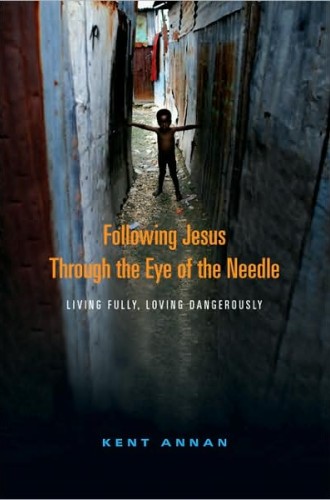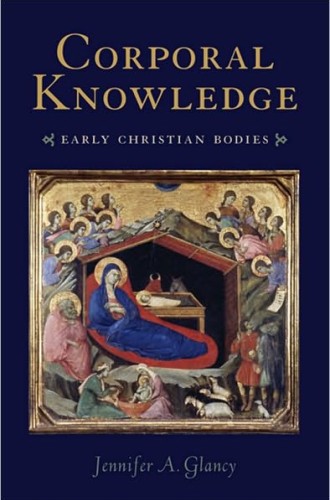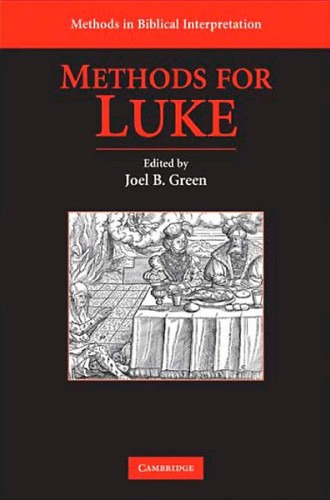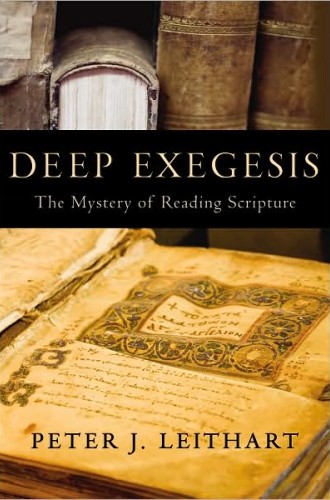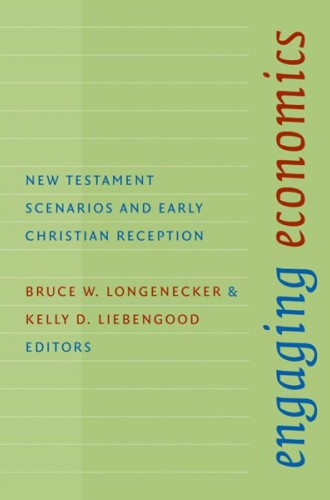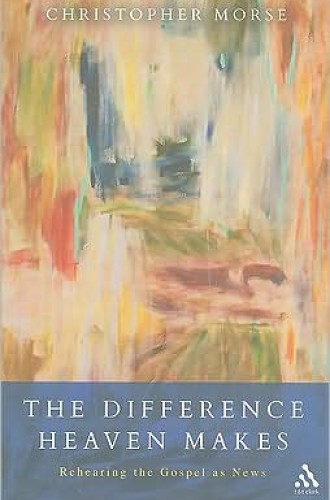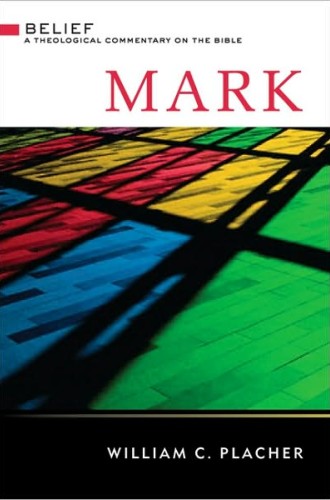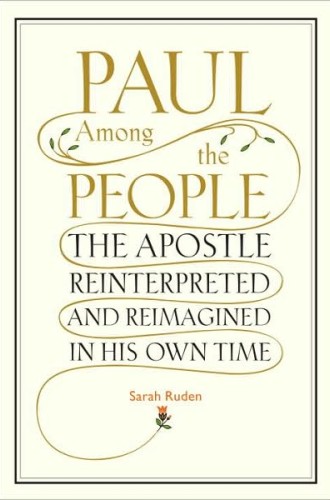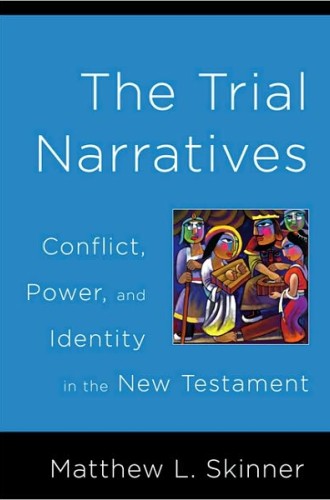Take & read: New Testament
Following Jesus Through the Eye of the Needle: Living Fully, Loving Dangerously, by Kent Annan. Annan's account of the work he and Shelly Satran have carried out in Haiti is not technically a work of biblical studies. It is, nevertheless, a riveting account of what it means for one deeply committed couple to attempt to follow Jesus. Nothing moralistic or smug is being dished out here, just honest reflection on trying to live the gospel in a world of intense deprivation and danger.
Corporal Knowledge: Early Christian Bodies, by Jennifer A. Glancy. What stories do bodies tell? And what do bodies know? In nuanced, even elegant studies of Paul's beaten and scarred body, slavery in early Christianity and Mary in childbirth, Glancy explores these provocative and largely neglected questions. Her attentions are by no means confined to antiquarian investigations, as she also explores contemporary questions about tortured and diseased bodies.
Methods for Luke, edited by Joel B. Green. To many newcomers to biblical studies—and to a fair number of veterans as well—discussions of method cause the eyes to glaze over. But this book should not be judged by its title. Green gathers introductions to historical criticism (Clare K. Rothschild), feminist criticism (Turid Karlsen Seim), narrative criticism (Green) and the role of biography in reading (Justo L. González), each of which culminates in an extensive discussion of either the parable of the rich man and Lazarus (Luke 16:19-31) or Jesus' warning about the scribes and his parable of the women with two small coins (Luke 20:45-21:4). The result is that we can see the contributions—and perhaps the limits—of each approach.
On Being a Disciple of the Crucified Nazarene, by Ernst Käsemann. Roy A. Harrisville deserves the gratitude of English-language audiences for his translation of this fine collection of the late Ernst Käsemann's unpublished sermons and occasional lectures (originally edited by Rudolf Landau and Wolfgang Kraus). The contents range across the New Testament, but the focus remains on the worldwide lordship of Jesus Christ. For Käsemann, that lordship is often "more strongly imperiled by its alleged representatives than by its enemies," making his work both challenging and necessary reading for church leaders.
Deep Exegesis: The Mystery of Reading Scripture, by Peter J. Leithart. Leithart provides an excellent remedy for the habit of reading scripture in search of the usable nugget, whether that nugget is understood historically, doctrinally, morally or spiritually. Through lively readings of John 9 enriched by an array of contemporary and classical literature, Leithart demonstrates the gifts that await patient, slow readers who lavish attention on words and lines and structures—readers who expect to see something new in the text.
Engaging Economics: New Testament Scenarios and Early Christian Reception, edited by Bruce W. Longenecker and Kelly D. Liebengood. Often I have heard the lament: "The church shouldn't talk so much about money. Church is for spiritual things." Those who hold that view may want to avoid Engaging Economics. Here scholars take up numerous New Testament texts having to do with money, as well as early Christian interpretations of those writings. However diverse the texts, they consistently show that economic life, especially care for the needy, is not an afterthought but stands at the heart of early Christian teaching.
The Difference Heaven Makes: Rehearing the Gospel as News, by Christopher Morse. In this small and elegant volume, Morse unpacks biblical understandings of heaven as God's dominion that is coming toward the present—as that which is "at hand but not in hand." He employs this notion of heaven to demythologize our paltry sense of what is the real world. Drawing widely on the biblical and theological tradition, Morse's work is biblical theology with a pastoral heart.
Mark (Belief: A Theological Commentary on the Bible), by William C. Placher. As Century readers know, the late William Placher combined learning and lucidity to an uncommon degree, and both of those qualities are on display in this volume. Placher listens to Mark's Gospel and puts Mark in conversation with Chrysostom, Calvin and many other great theologians. Most commentaries are read as reference works, raided here and there as needed. Placher's deserves to be savored, beginning to end.
Paul Among the People: The Apostle Reinterpreted and Reimagined in His Own Time, by Sarah Ruden. Instead of locating Paul within the social norms of progressive Western Christianity and finding him wanting, Ruden locates him within the rampant brutality and exploitation of his own Greco-Roman setting. What she finds will not be startling to specialists, but it will shock many who think of him as "grumpy pants Paul" (Ruden's phrase). In addition to providing a much-needed debunking of the debunkers, Ruden's account is witty, wise, even entertaining.
The Trial Narratives: Conflict, Power, and Identity in the New Testament, by Matthew L. Skinner. Trials put a society's values and conflicts on display, as anyone knows who has read Plato or watched an episode of Law and Order. Skinner offers a fine guide through the various Gospel accounts of the trial of Jesus and those of Jesus' followers in the Acts of the Apostles. This accessible volume could be used profitably through Lent and Eastertide to connect pastors and congregations with the trial scenes that claim considerable attention in the New Testament.


